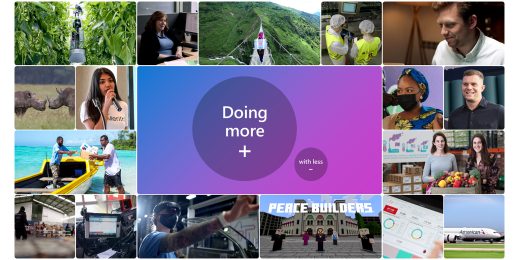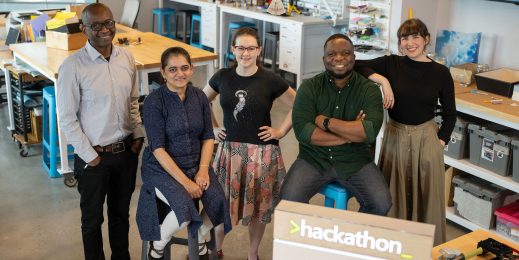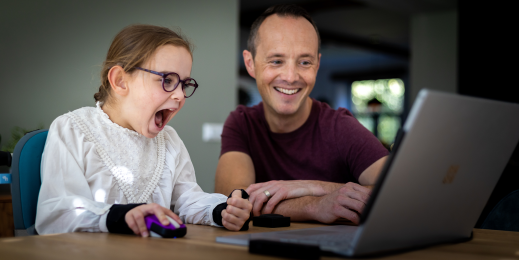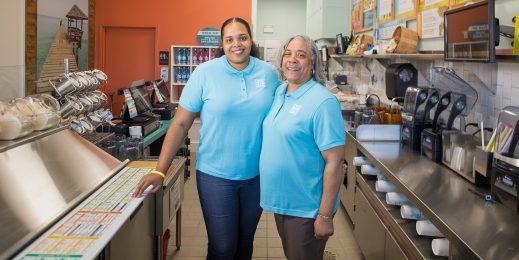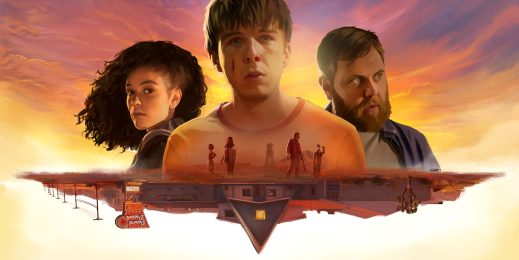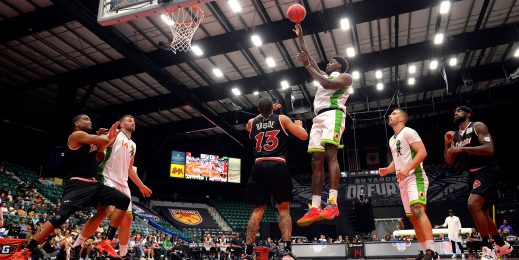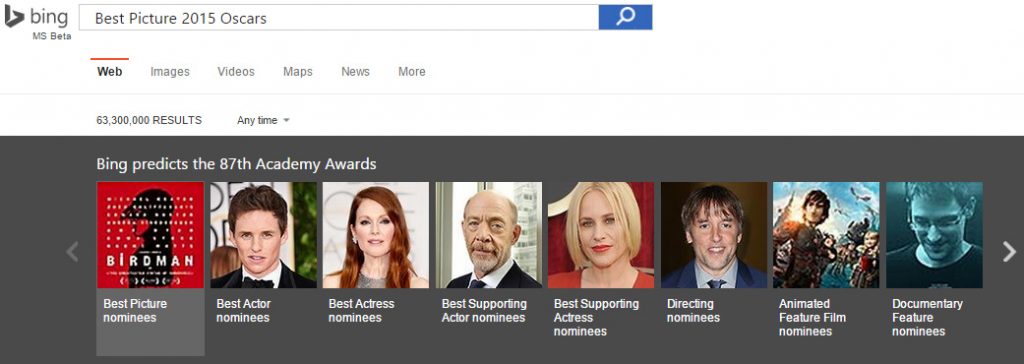
May the odds be in your favor: Bing predicts the winners of big events and adds a fresh perspective
From friendly wagers to office pools, we’re wired to speculate on all sorts of big events – like the upcoming Academy Awards, as well as recent championship games in the world of sports and, in politics, the mid-term elections. Using Web activity, social media and many other online data points, Bing adds a powerful resource to our inclination toward prognostication.
“Bing’s predictions offer up a fresh perspective on the world’s information,” says Matthew Quinlan, Bing’s director of product marketing. “And in some cases, that perspective is fun and interesting, and people can use it as conversation points. In other cases, it’s actually directly useful and gives a new lens on information so you can take action in some way.”
For almost a year now, Bing has unveiled its forecasts for major events that usually fall under three categories: entertainment, sports and politics. It’s a modern twist on a psychic, using facts and other tangible factors to come up with its particular form of technological alchemy. It’s definitely another source to consider if you’re the betting type – especially since it’s often come out ahead of Vegas, as it did earlier this month choosing New England over Seattle in the big game.
Bing has already had success with highly accurate calls on competitive entertainment shows like “American Idol,” “The Voice” and “Dancing with the Stars.” (It accurately predicted the outcome of every single week of the 13th season of “American Idol” that culminated in crowning Caleb Johnson the winner.) It weighed in on the Scottish referendum in the fall and had the “no” vote falling between 51 and 59 percent for the two months leading to the vote, which ultimately came in at 55 percent voting “no.” In the mid-term U.S. elections, Bing Predicts made the right call in 34 of 35 seats in the Senate, 419 of 435 seats in the House and 33 of 36 seats for Governor.
Recently, Bing correctly predicted Sam Smith’s win as best new artist in the Grammy Awards. Bing also has predictions for the upcoming Oscars, including “Birdman” to take Best Picture, Eddie Redmayne for Best Actor and Julianne Moore for Best Actress.
“Bing’s predictions are less of a headline-grabbing novelty act and more of an application of content, algorithms and intelligence to bring a new perspective,” says Quinlan. “It’s really meant to be a new point of view on data that either helps you vote, or just for fun, to know the winner before the envelope is opened.” He adds, “The predictions don’t stand by themselves, but are connected to the information and experiences that help you explore the topic and its major players for yourself.”
Bing draws its predictions from web data, social networks, real-time data streams, and historical precedents (winners in certain categories at other major awards tend to win at the Oscars, for instance). There’s also the “wisdom of the crowd” – information in aggregate – in being able to impact outcomes of certain events.
Through working with a team of developers and applied scientists, Walter Sun, a development manager overseeing work in Core Ranking for Bing and now Bing Predicts, first realized there was a lot of information in aggregate web data which could be used to infer specific facts. For instance, spikes in searches for specific school districts could mean parents were looking for weather closures. From there, Sun and his team built out Bing Predicts, first to entertainment shows and then to sports (the 2014 NBA Draft and the 2014 World Cup, in which they predicted 15 out of 16 of the matches correctly) and politics (Scotland Referendum and mid-term elections).
“The main goal is to use Web data to help us make good predictions in events where aggregate user activity highly correlates to outcomes. In events like sports where this is not the case, we can use the same data to learn the crowd wisdom to make predictions, going beyond solely prior statistical models, which is what most domain experts use to make their inferences,” Sun says. “As for why this might be interesting to users, consider the case of a reality singing show. I think of myself as an ‘average’ viewer since I’m not musically inclined, so when I watch such a show, I see 12 or so contestants who sound equally pleasant to me. Being able to know who to look out for as front runners makes the show more interesting to me as I’m following it.”
For those who are voting in elections, the predictions might prompt them to find out more about the favored contenders, or to more closely follow issues and elections they might not have realized were so competitive.
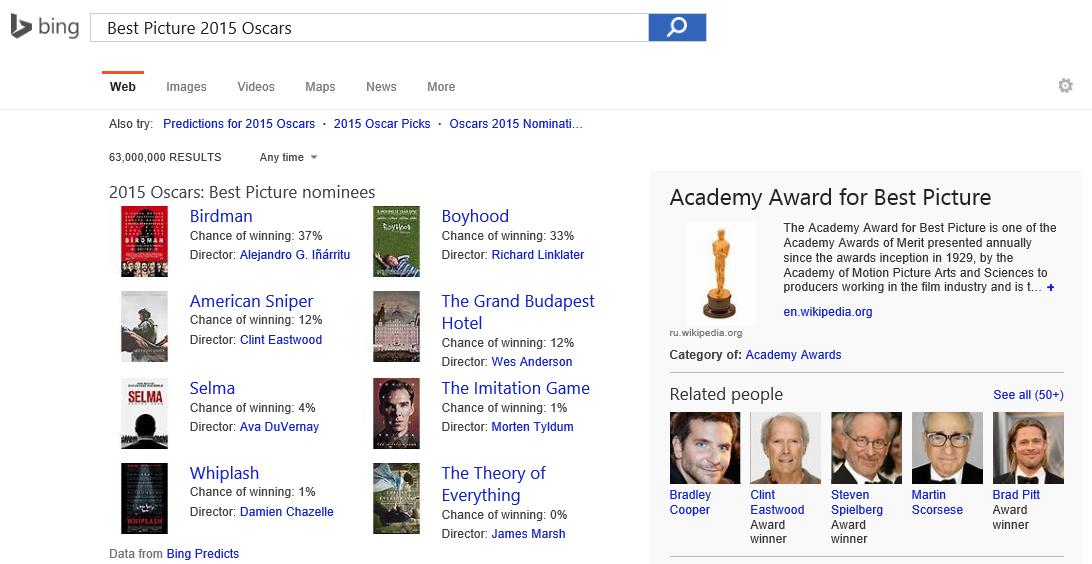
The recipe for predictions varies with the type of event it is. For the Oscars, Bing took into account winners of the major categories at comparable awards, such as the Screen Actors Guild awards or Golden Globes, and try to learn correlations from past years. Then, they add public sentiment (Web activity, social media) to gauge the popularity of the nominees.
“No one person knows everything about a situation,” Sun says. “It’s a two-step process. We start with a baseline model – such as, winners in certain categories in BAFTA tend to win those same categories at the Oscars – and that gives us the initial confidence to start the prediction. Then we take social sentiment and Web activities to fine-tune our probabilities.”
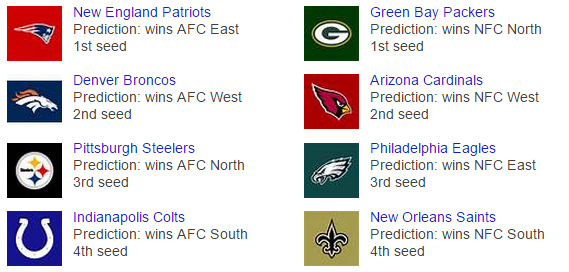
With American football, Sun says, their baseline starts with the strongest teams by a variety of historical data, then look at Web activity and social sentiment. But because professional sports changes every week, they constantly update the prediction models based on the outcome of each week’s events, with the Web and social activity adjusting the probabilities to account for injuries, the potential impact of scandals, and other late-breaking information.
“We’ve shifted to this age where the volume of information and our time to interpret it and do something with it are out of balance. So we’re at a point where Bing has this key role to play. Big data and machine learning are transformative innovations. If you put those two things together, they give us the ability to uncover patterns in the data,” Quinlan says. “Bing plays the data forward to give us a picture of the future.”






